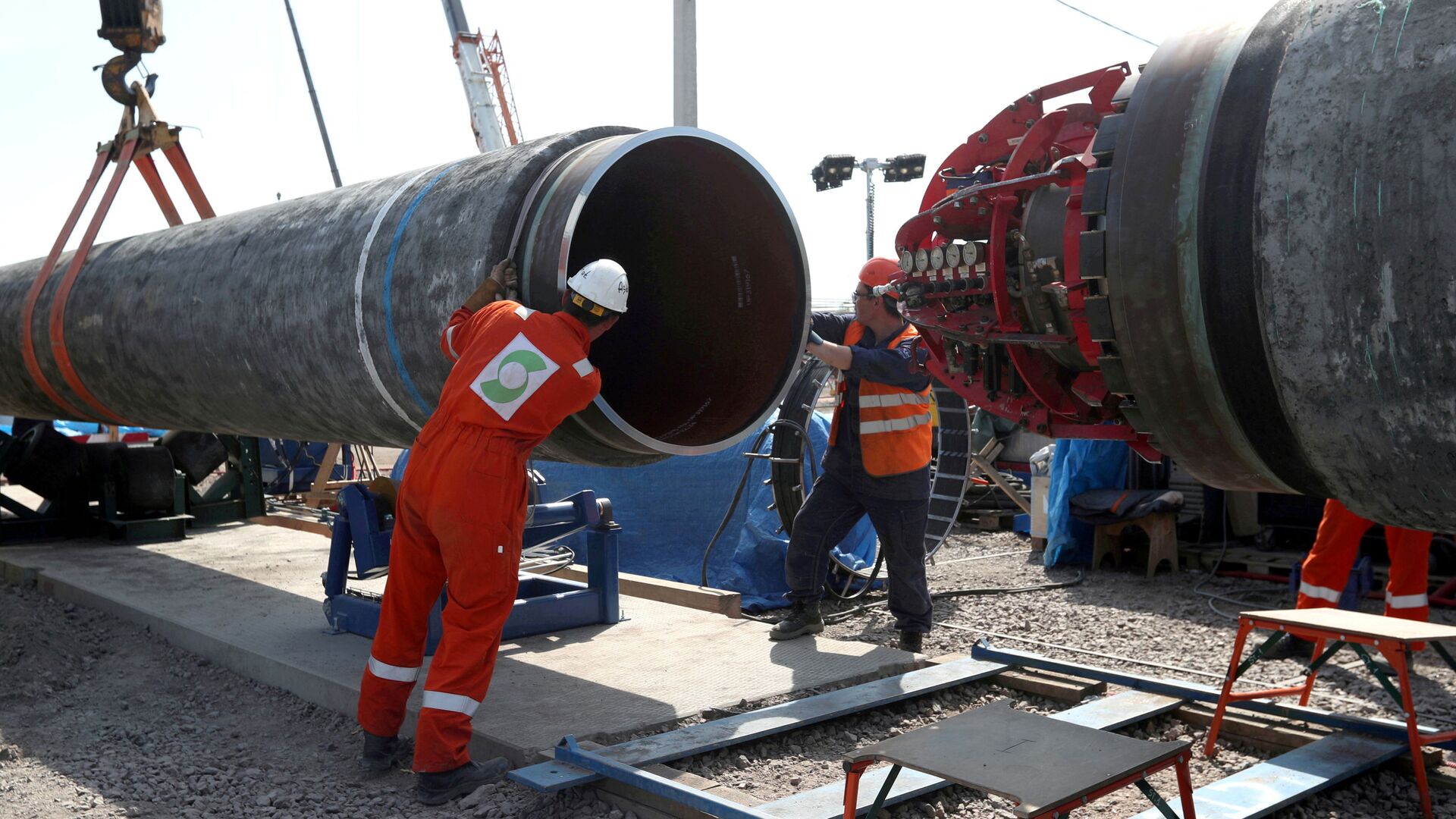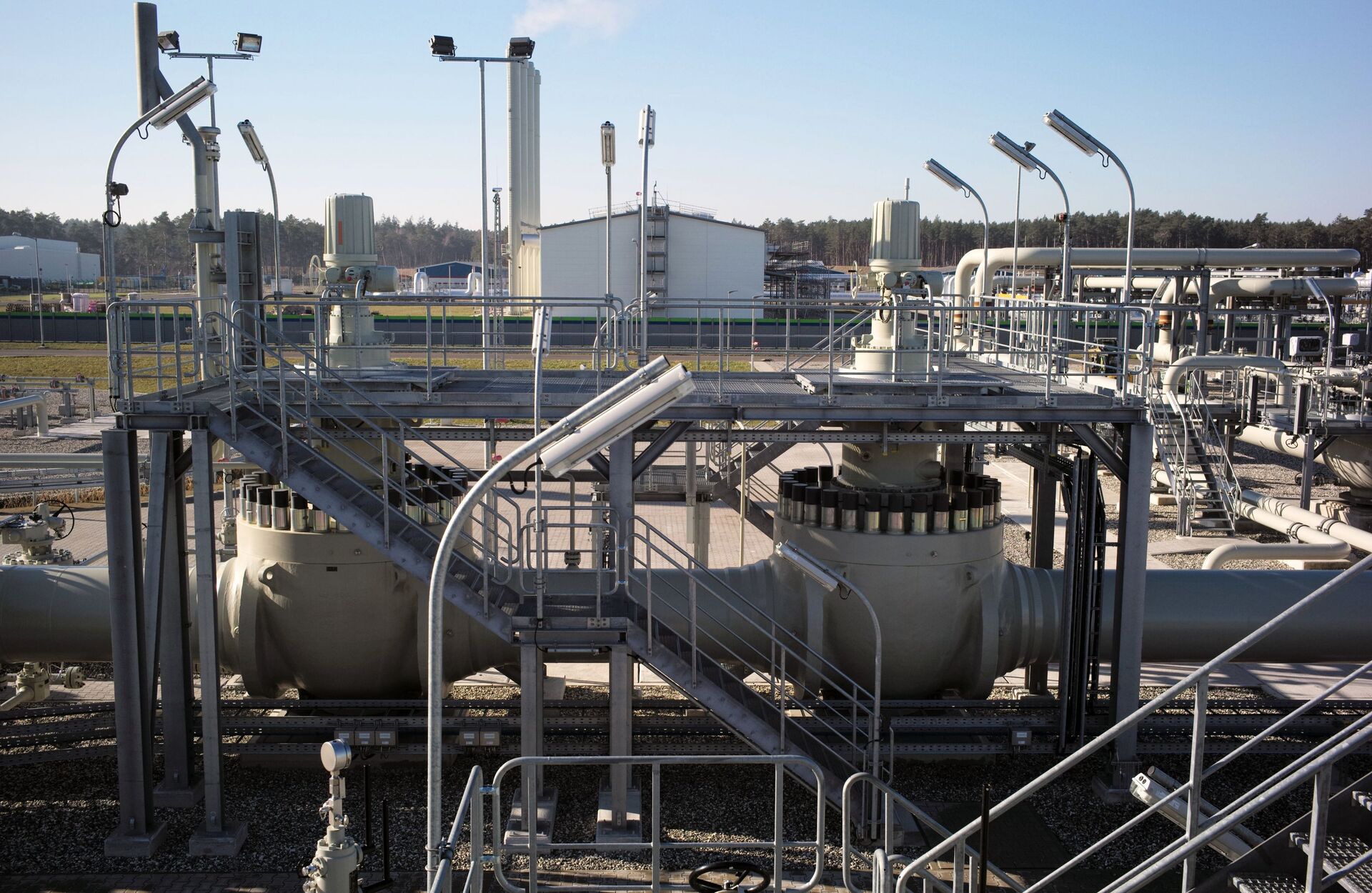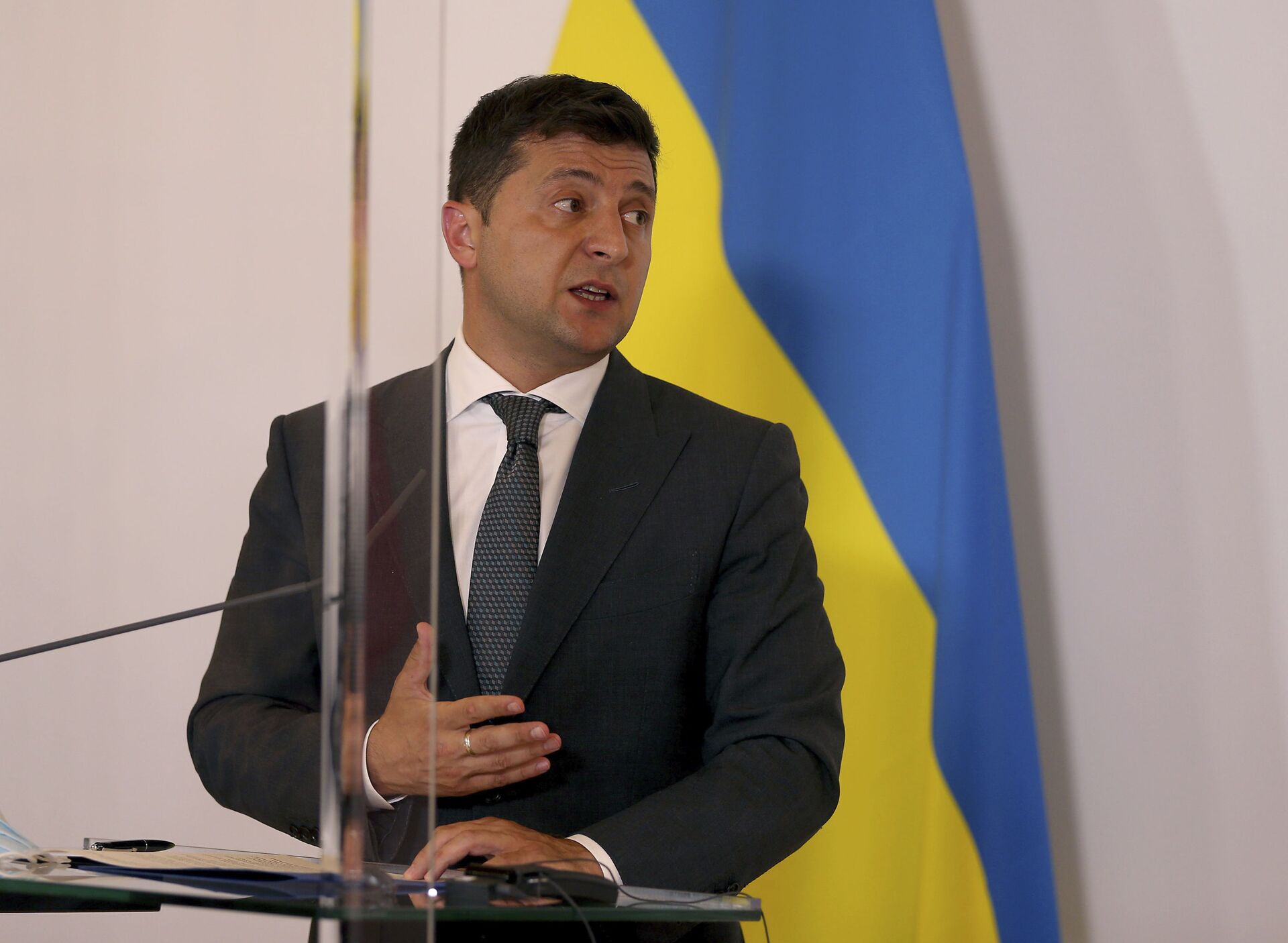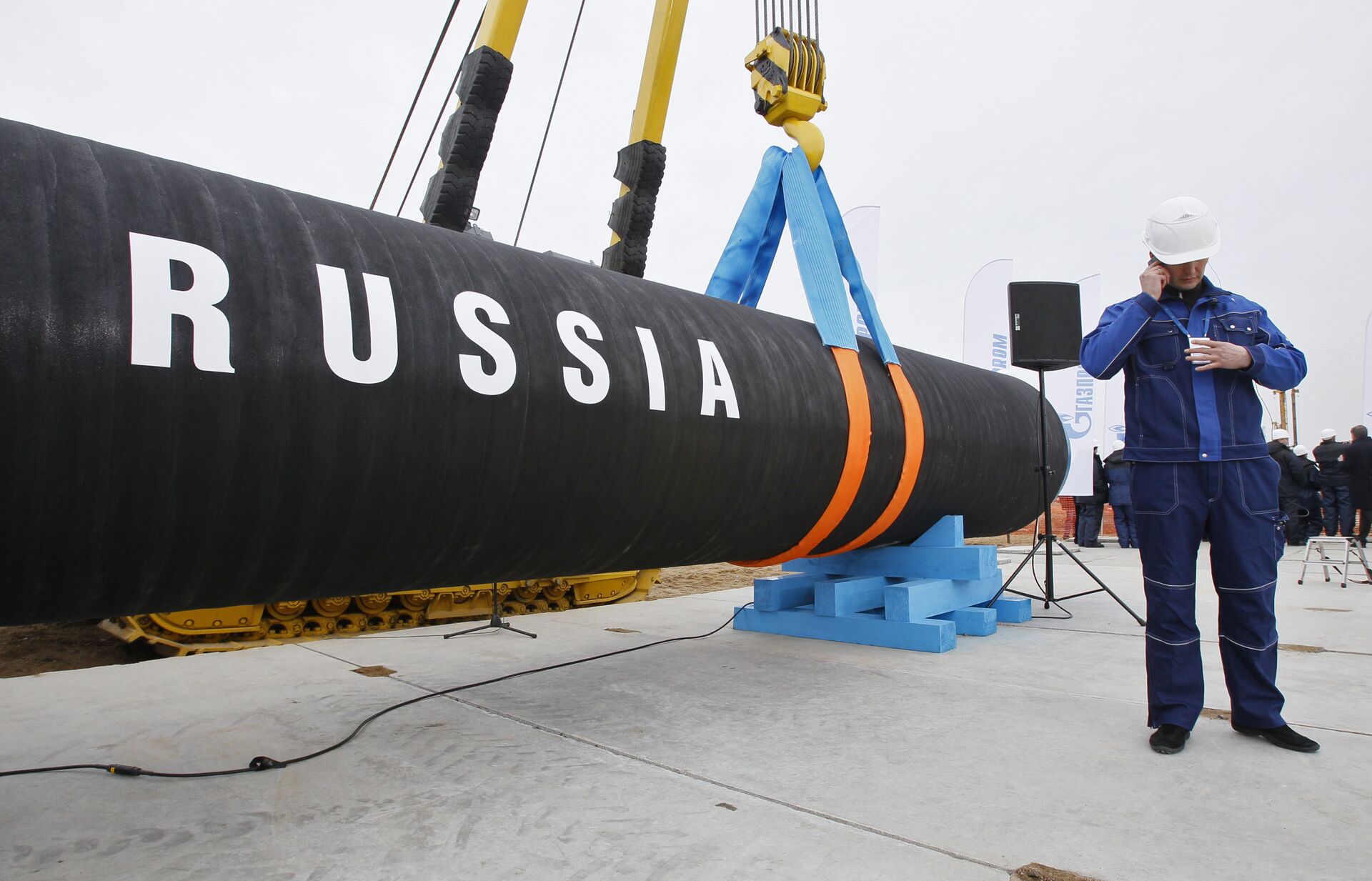Ukraine's Zelensky ‘Not Happy’ With US-German Deal on Nord Stream 2, Slams Pipeline as ‘Weapon’
11:47 GMT 20.08.2021 (Updated: 21:18 GMT 19.10.2022)

© REUTERS / Anton Vaganov
Subscribe
In July, the US and Germany reached a deal on the contentious issue of the Nord Stream 2 gas pipeline. Washington vowed to suspend sanctions against the project, while Berlin agreed to invest in Ukrainian energy and to facilitate the extension of the gas transit agreement between Kiev and Moscow, set to expire in 2024, for up to ten years.
Ukrainian President Volodymyr Zelensky has acknowledged he is not happy with the agreement reached earlier between the United States and Germany to allow completion of the Nord Stream 2 pipeline.
Speaking in an interview with journalists from Washington Post, Liberation, Funke Media, Novoe Vremya and Novaya Gazeta, he noted that Nord Stream 2 is among the priorities on the agenda of his upcoming meeting with US President Joseph Biden in Washington on 31 August.
The Ukrainian President emphasized that as long as the Joint Russian-European energy megaproject has not been launched, Ukraine will tirelessly negotiate to protect its interests.
"But this is a long way, even if 1% of the work remains until the full completion of Nord Stream 2. To build a gas pipeline is one thing and to launch it is another, it takes time. It is necessary to comply with international law and international energy standards. Guarantees must also be considered. We will use this time to protect our own interests," said Zelensky.
According to him, even after the construction of this pipeline is complete, there remains a chance that it will not start functioning.

Construction of the Nord Stream 2 gas pipeline in Germany
© Sputnik / Ekaterina Solovieva
/ Zelensky stressed that Ukraine is facing potential losses of up to $2 billion annually due to the termination of gas transit through its territory. Furthermore, as less fuel would be transported through the Ukrainian pipeline, Ukrainian consumers might be forced to contend with soaring gas prices.
"Nord Stream 2 is a weapon. Moscow may create a shortage of supplies in the gas market and thus raise the price. In today's world, it is not necessary to buy machine guns to damage the country. You can just use economic instruments," stated Zelensky.
The remarks come after Germany and the US clinched a deal in July on the completion of the project without the threat of American sanctions. Among the conditions stipulated in the agreement, Germany vowed to use all possible leverage to prolong Russian gas transit through Ukraine.
The $10.5 billion megaproject Nord Stream 2 is a joint endeavor between Russia’s Gazprom and five major European energy concerns, including Germany’s Uniper and Wintershall, France’s Engie, Austria’s OMV and the Anglo-Dutch Royal Dutch Shell.

President of Ukraine Volodymyr Zelensky addresses the media at a joint press conference with Austrian Chancellor Sebastian Kurz after their meeting at the federal chancellery in Vienna, Austria, Tuesday, Sept. 15, 2020.
© AP Photo / Ronald Zak
The over 99 percent complete project is comprised of a twin pipeline stretching approximately 1,230 km from Russia to Germany along the bottom of the Baltic Sea. The network bypasses traditional gas transit routes through Eastern Europe, which has left Ukraine especially concerned by a potential halt in transit payments.
With one of the two lines finished, and construction of the second being wrapped up, the network is expected to go online before the year is out, set to supply up to 55 billion cubic metres of gas annually. The aggregated design capacity of Nord Stream and Nord Stream 2 is therefore 110 billion cubic meters of gas per year.

In this April 9, 2010 file photo, a Russian construction worker speaks on a mobile phone in Portovaya Bay some 170 kms (106 miles) north-west from St. Petersburg, Russia, during a ceremony marking the start of Nord Stream pipeline construction.
© AP Photo / Dmitry Lovetsky
The US and its allies in Eastern Europe, especially Poland and Ukraine, have been actively opposing the construction of Nord Stream 2, arguing it would give Russia additional leverage while compromising Europe's energy independence. Earlier this year, the Biden administration scrapped US sanctions against Nord Stream 2 that were imposed in 2019, saying Washington had opted not to obstruct the pipeline's construction upon realizing the inefficiency of its sanctions and driven by a desire to avoid alienating Berlin.
Russia has repeatedly stressed that Nord Stream 2 is a purely commercial project seeking to diversify energy streams to Europe.

